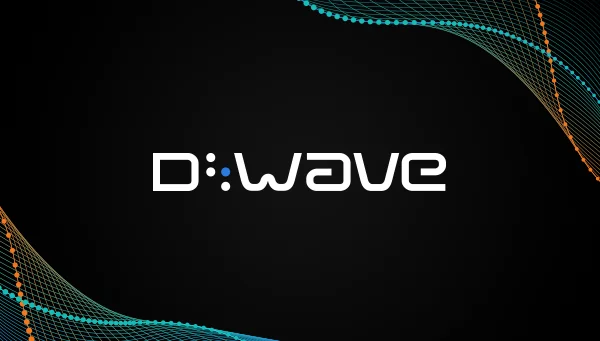Insider Brief
- The Biden administration’s direct involvement in setting international quantum technology standards is seen by some as premature and could undermine traditional private sector leadership.
- Critics argue that early government intervention risks locking in standards before the technology fully matures, potentially stifling innovation.
- Proponents believe government leadership is necessary to counter China’s influence and ensure U.S. interests are protected in the rapidly evolving field of quantum technology.
The Biden administration’s recent move to take the lead in setting international standards for quantum technology has sparked concerns among experts and stakeholders, including experts at a leading think tank on innovation and technology. Critics argue that the U.S. government’s direct intervention in this nascent field is premature and could stifle innovation, ultimately hampering the development of quantum technologies.
According to a recent policy paper by Nigel Cory, Associate Director of Trade Policy at the Information Technology and Innovation Foundation (ITIF), the administration’s decision to push for a new joint technical committee (JTC) on quantum standards within the International Standards Organization (ISO) and International Electrotechnical Commission (IEC) is a significant departure from the traditional U.S. approach. Historically, the private sector has led international standards efforts, with the government playing a supportive role. However, the Biden administration has now placed itself at the forefront, sidelining industry experts and potentially undermining the collaborative process that has long defined standards development.
Cory warns that pushing for standards before a technology — especially one that is still largely in the development stage, such as quantum — is fully developed can limit its potential and lock in specific functions before the technology’s full capabilities and uses are understood.

“Quantum technologies are still immature and do not need a new, broad framework as early, targeted standards discussions were already underway elsewhere,” Cory writes. “The administration made a mistake in pushing for a new International Standards Organization (ISO) and International Electromagnetic Commission (IEC) joint technical committee (JTC) on standards for quantum technologies.”
Bypassing ANSI
One of the key concerns discussed in the paper is the administration’s decision to bypass the American National Standards Institute (ANSI), the official national standards body of the United States, which traditionally coordinates U.S. engagement in international standards-setting. Instead, the administration directly engaged with other countries, including Australia, Korea, and the United Kingdom, to rally support for the new JTC on quantum technologies. This move, according to Cory, undermines the established process and could lead to confusion and conflicting messages about the U.S. position on quantum standards.
“This is highly unusual. The U.S. standards system is private sector led. ANSI is the national representative to the ISO and IEC,” Cory writes.
By sidelining ANSI and placing the U.S. government in a leading role, the administration risks alienating private sector stakeholders and weakening U.S. leadership in international standards development, according to the trade policy expert.
Cory writes: “ANSI itself is not a standards-making body but acts as a neutral venue for coordination of standards engagement among U.S. stakeholders, including U.S. government agencies like NIST. By doing this, the Biden administration undermines U.S. engagement at the ISO/IEC, and more broadly leadership on international standards, as it leads to confusing and conflicting messages on the U.S.’s position towards standards for new and emerging technologies like quantum.”
The paper also raises concerns about the implications of this shift for U.S. engagement in the broader standards-setting process. Cory argues that the administration’s actions could be seen as hypocritical, given that the U.S. has frequently criticized China for using government influence to advance its own standards in international bodies. “This move also raises concerns about the U.S. government’s ongoing interest in directly intervening in technical standards—a practice it has criticized China for using to advance political and industrial policies,” he writes.
The focus on quantum computing as the centerpiece of this new standards effort is seen as misguided, according to Cory. He writes that quantum technologies are still in the early stages of development, with many products and services not yet commercially available. The need for formal standards, particularly for quantum computing, is not yet clear, and the private sector remains hesitant to invest in standardization efforts for such immature technologies.
“Establishing a JTC for quantum technologies is premature. It’s like setting up a framework before knowing what it’s needed for—putting the cart before the horse,” Cory argues. The typical reasons for developing technical standards, such as ensuring interoperability between different companies’ products, do not yet apply to quantum technologies.
Cory adds: “For example, it’s not clear whether IBM’s quantum services will need to be interoperable with Amazon, Google, D-Wave, or Microsoft’s quantum computing services. Quantum technologies are a case of trailing-edge standardization, focusing on controls and technical requirements after technologies are deployed, unlike leading-edge standardization such as smartphones, where standards are needed before products can be used.”
Other Moves
This shift in U.S. strategy comes against the backdrop of recent developments in the international standards-setting arena. In early 2024, The International Electrotechnical Commission (IEC) and the International Organization for Standardization (ISO) approved the formation of a new Joint Technical Committee (JTC) on Quantum Technologies, which will be managed by the British Standards Institution (BSI) as Secretariat and chaired by a representative of the Republic of Korea. In response, the American National Standards Institute (ANSI) has selected the National Institute of Standards and Technology (NIST) to administer the U.S. National Committee (USNC) Technical Advisory Group (TAG) to ISO-IEC/JTC3 on Quantum Technologies.
This move could be seen as another example of the increased role of the U.S. government in areas traditionally led by the private sector, aligning with the broader concerns about government overreach explored in Cory’s paper.
The Private Sector-led Approach
The policy paper underscores the importance of maintaining a private sector-led approach to standards-setting, particularly in emerging technologies like quantum computing. Cory calls for improved communication and coordination between the U.S. government and the private sector to ensure that standards development remains a collaborative process that benefits all stakeholders.
The paper offers an important assertion that standards should not be viewed as a zero-sum game but as a collaborative effort that requires input from all relevant parties.
“The Biden administration’s approach to standards in its effort to compete with China in new and emerging technologies is flawed,” Cory writes. “Improved communication and coordination with the private sector on international quantum standards are critical to correcting U.S. policy and should be a key part of the implementation roadmap for the U.S. standards.”
Counterpoints
It’s important to consider the other sides in this argument — we can try to offer some counterpoints. Overall, in the development of technologies with as large of transformative-slash-disruptive potential of quantum, it’s possible that the administration believes alternative paths to standards-setting are needed.
In fields like quantum technology, where the stakes are incredibly high, experts might suggest that it is crucial for the U.S. government to take a leadership role in setting international standards to ensure a technological edge and safeguard national security.
Perhaps the Biden administration’s move is justified in context to the intense international competition swirling around quantum. Namely, China has shown a clear strategy of using standards-setting to gain a competitive advantage in emerging technologies. The U.S. government’s immediate involvement could be seen as crucial to ensure that international standards reflect fair competition and are not skewed in favor of Chinese companies. For certain, quantum computing’s potential to revolutionize cryptography sparks significant national security risks and, recognizing the speed of quantum computing development, that risk could unfold into reality so quickly that having a cart in the general vicinity of a horse is better than having no horse or cart at all, to completely botch Cory’s analogy. If this is guiding the administration’s risk calculations, however, it would be imperative that the U.S. government insert itself immediately in setting standards to protect against potential vulnerabilities.
Finally, government involvement in standards-setting might be seen not as an exclusionary tactic, but as a way to bridge the gap between public and private sectors. This could help ensure that the process benefits from the expertise of all stakeholders while aligning with national priorities.
About ITIF
The Information Technology and Innovation Foundation (ITIF) is a leading think tank focused on advancing public policies that drive technological innovation and productivity. ITIF conducts research and analysis on a wide range of issues at the intersection of technology, innovation, and public policy, advocating for strategies that support economic growth and global competitiveness. The foundation emphasizes evidence-based policy recommendations, striving to influence decisions that foster innovation while opposing policies that may hinder technological progress.














